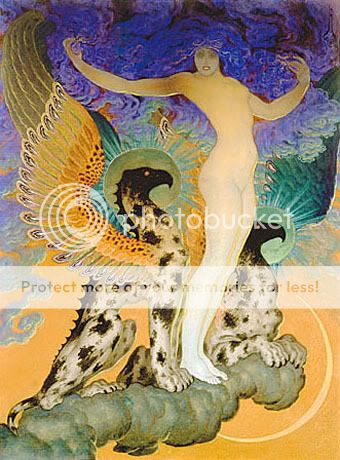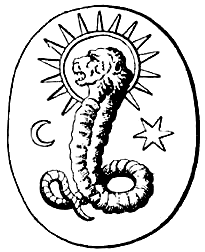If you are using Chrome, click the red hand button at the top right of the screen:

Then select: Don't run on pages on this site
If you do it correctly, the red hand will turn to green and you will no longer see this message.
Some hungarian people say that Countess Bathory was not as guilty as it seems to be.
Here is an interesting controverse about that lady:
http://www.twcenter.net/forums/showthread.php?t=63253
And it seems to be guilty to me.
Ater all there are substances who could delay blood coagulation and other methods(keeping it at a certain temperature).
Also there could be a torture instrument that could be used as a shower to bath the lady that satands underneath.At least that`s how Andei Codrescu suggests that she could use.
To say more about it I should see those Thurzo documents.But they are kept in the Hungarian National Library.Does anybody know where could I find the document on the internet or elsewhere?
What is your opinion about the controverse?
The Sleeper
(1831)
by Edgar Allan Poe
At midnight, in the month of June,
I stand beneath the mystic moon.
An opiate vapor, dewy, dim,
Exhales from out her golden rim,
And, softly dripping, drop by drop,
Upon the quiet mountain top,
Steals drowsily and musically
Into the universal valley.
The rosemary nods upon the grave;
The lily lolls upon the wave;
Wrapping the fog about its breast,
The ruin molders into rest;
Looking like Lethe, see! the lake
A conscious slumber seems to take,
And would not, for the world, awake.
All Beauty sleeps!- and lo! where lies
Irene, with her Destinies!
O, lady bright! can it be right-
This window open to the night?
The wanton airs, from the tree-top,
Laughingly through the lattice drop-
The bodiless airs, a wizard rout,
Flit through thy chamber in and out,
And wave the curtain canopy
So fitfully- so fearfully-
Above the closed and fringed lid
'Neath which thy slumb'ring soul lies hid,
That, o'er the floor and down the wall,
Like ghosts the shadows rise and fall!
Oh, lady dear, hast thou no fear?
Why and what art thou dreaming here?
Sure thou art come O'er far-off seas,
A wonder to these garden trees!
Strange is thy pallor! strange thy dress,
Strange, above all, thy length of tress,
And this all solemn silentness!
The lady sleeps! Oh, may her sleep,
Which is enduring, so be deep!
Heaven have her in its sacred keep!
This chamber changed for one more holy,
This bed for one more melancholy,
I pray to God that she may lie
For ever with unopened eye,
While the pale sheeted ghosts go by!
My love, she sleeps! Oh, may her sleep
As it is lasting, so be deep!
Soft may the worms about her creep!
Far in the forest, dim and old,
For her may some tall vault unfold-
Some vault that oft has flung its black
And winged panels fluttering back,
Triumphant, o'er the crested palls,
Of her grand family funerals-
Some sepulchre, remote, alone,
Against whose portal she hath thrown,
In childhood, many an idle stone-
Some tomb from out whose sounding door
She ne'er shall force an echo more,
Thrilling to think, poor child of sin!
It was the dead who groaned within.
~~~~~~~~~~~~~~~~~~~~~~~~~~
"The poem that would become "The Sleeper" went through many revised versions. First, in the 1831 collection Poems of Edgar A. Poe, it appeared with 74 lines as "Irene." It was 60 lines when it was printed in the Philadelphia Saturday Courier on May 22, 1841. Poe considered it one of his best compositions, according to a note he sent to fellow author James Russell Lowell in 1844. Like many of Poe's works, the poem focuses on the death of a beautiful woman, a death which the mourning narrator struggles to deal with while considering the nature of death and life. Some lines seem to echo the poem "Christabel" by Samuel Taylor Coleridge, a poet known to have had a heavy influence on Poe's poetry.
Poe praised "The Sleeper" as a "superior" poem. He wrote to an admirer: "In the higher qualities of poetry, it is better than 'The Raven'—but there is not one man in a million who could be brought to agree with me in this opinion."
"Il y a toujours à perdre pour une femme à faire son amant de son ami, mais il y a beaucoup à gagner à faire son ami de son amant."
Madeleine de Puisieux .
COMMENTS
A single tear falls as my heart sighs~
Simply Divine.
And it`s written in Summer thousands of years ago!



Nephilim
The Grigori or Watchers are a group of fallen angels who mated with mortal women, giving rise to a race of giants known as the Nephilim. The Grigori, also known as "Watchers", appear in the books of Enoch and Jubilees.
The Grigori numbered a total of 200 but only their leaders are named in the Book of Enoch
According to some Jewish folklore, the Grigori or Watchers are a superior order of angels whose proper place is either second or fifth heaven. They are often described as looking like human beings, but much larger. They are said to never sleep and are supposedly forever silent. While there are good and bad Watchers, most stories revolve around the evil ones that fell from grace when they took "the daughters of man" as their own.
COMMENTS
I seem to remember that there is an explanation somewhere that said something to the effect that the souls of the Nephilim are in fact the demons regarded in the Christian mythology. It had something to do with the souls not having a place in either heaven or hell. That they were doomed because the angels disobeyed some kind of 'hands off' agreement from the almighty El to leave the children of man alone. Thus the offspring were cursed to move through 'dry places' for eternity. Legion was said to be one (or many) of the same cursed souls. Just a thought.



| What mythical creature are you? |
  Unicorn You are faithful to the end. Usually appreciating a solitary life with a mysterious aire about you. You are strong and keep your feelings to yourself. You also have a great love of nature. Truely, a loving soul. |
| How do you compare? Take this test! | Tests from Testriffic |
| What Demon Rules Your Month (Not Zodiac) |
| Leviathan "Twisted, Coiled" The Christian interpretation of Leviathan is often considered to be a demon or a sea dragon associated with Satan & some biblical scholars considered Leviathan to represent the pre-existent forces of chaos. Some interpreters suffest that Leviathan is a symbol of mankind in opposition to God, claiming that it & the beasts mentioned in the books of Danial & Revelation should be interpereted as metaphors. Leviathan is also sometimes said to have been of the order of the Seraphim. |
Fun quizzes, surveys & blog quizzes by  |
| What type of archangel are you? |
| Uriel The flame of god. He has been given many names due to occult righting but this is supposedly the original. He is often called the angel or cherub of repentance and is occasionally seen holding a fiery sword. He has been given the titles regent of the sun, angel of the Divine Presence, gate keeper to hell, archangel of salvation. He is often depicted carrying a book or a papyrus scroll representing wisdom. Uriel is a patron of the Arts and Culture. South wind |
Fun quizzes, surveys & blog quizzes by  |
| What type of demon are you? |
| Asmodai or Asmosdeus Is a demon lord of carnal desire or lust. He has a large amount of followers in hell and is depicted and being in charge or hells gambling. He is also seen as a demon of revenge. He is often seen with three heads and wings of a dragon. |
Fun quizzes, surveys & blog quizzes by  |
| What Type Of Playing Card Are You? |
| Spades The spade represents a leaf of the "cosmic" tree, and thus life. Along with its companion suit, clubs, spades represent fall and winter and the power of darkness. In the Tarot, they symbolize intellect, action, air, and death. Traits: Solitary, Loner, Independent, Cold, Distant, Cultured, Knowledgeable, Leadership qualities, Enigmatic,Dependent, Deep, Overpowering, Original/Unique, Loyal. |
Fun quizzes, surveys & blog quizzes by  |

COMMENTS
-
Sinora
17:59 Sep 27 2008
Simply beautiful....even though I confess to being very ignorant about most of the people's work you put in here....I love to read it.
Dragonrouge
22:45 Sep 28 2008
I am glad and honoured to knew that I could present to you some of the jewels of this world.
I wish I was in your place and read thi sfor the first time...
"Our silence is a black cavern,
From which a soft beast steps at times
And slowly lowers heavy eyelids.
On your temples black dew drips,
The last gold of expired stars."
*sighs*
ImmortalLegacy
02:22 Oct 04 2008
Very nice.. I enjoyed that very much..